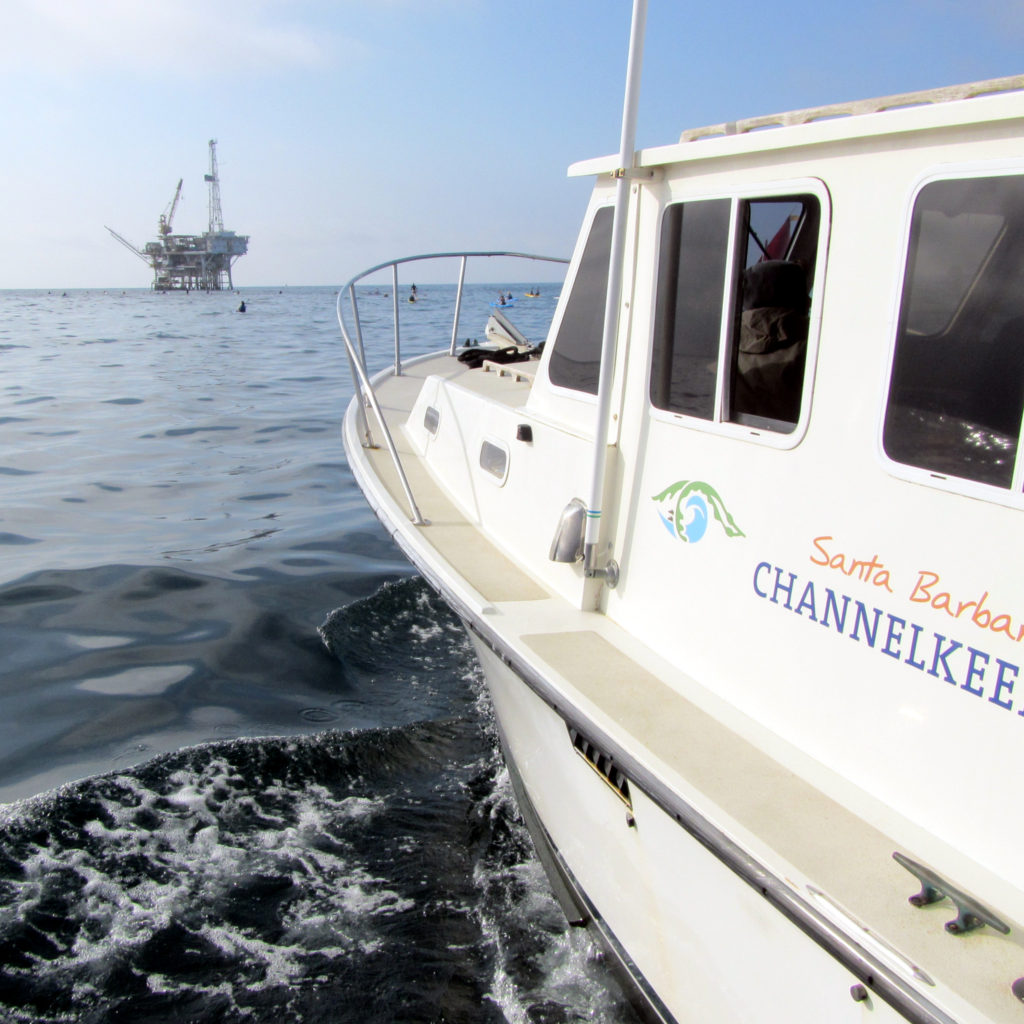California’s coast, ocean, and bays have repeatedly been struck by environmental disaster from oil spills. In 1969 a massive oil spill in the Santa Barbara Channel released more than three million gallons of oil over the course of several months and blackened beaches along 40 miles of coastline. This spill effectively launched the modern environmental movement, but spills along the California coast continue.
In November 2007, the container ship Cosco Busan struck the Bay Bridge and released approximately 53,000 gallons of oil into San Francisco Bay and along the coastline outside the Golden Gate Bridge; a second smaller spill from the Dubai Star oil tanker in 2009 polluted six miles of the East Bay shoreline of San Francisco Bay. In May 2015, history repeated itself in Santa Barbara when the onshore All American pipeline ruptured, spilling more than 140,000 gallons of crude oil onto one of the last remaining stretches of pristine, undeveloped coastline in California. In addition to oil spills on the shoreline, smaller inland spills collectively release more than half a million gallons of oil into inland waters annually.
These events cast a glaring spotlight on the risks of oil development. Not only do oil spills harm coastal wildlife and ecosystems, but they endanger California’s $43.5 billion ocean economy produced from fishing, tourism, and recreation, and they risk the jobs of 555,010 Californians who rely on the ocean for their livelihoods. Despite these risks, the Trump administration is threatening to open our shores to new and expanded offshore oil development by initiating a new Five-Year Leasing Plan. The Draft National Outer Continental Shelf Leasing Plan, released in early January 2018, proposes to open more than 90% of the U.S. coastline, including California, to potential new and expanded oil drilling.

CCKA has long urged top state officials to block new offshore oil drilling and to dedicate more funds to oil spill prevention. Following the Cosco Busan spill in 2007, CCKA served the public as the appointed Environmental Community Representative to the Coast Guard’s Incident Specific Preparedness Review (ISPR) for the Cosco Busan spill and supported a comprehensive package of oil spill legislation. In 2015, CCKA supported reforms to improve oil-pipeline safety, preparedness, and response by requiring regular inspections, better technology including automated shutoffs, and more effective oil-spill response. These bills were signed into law by Governor Brown. CCKA also worked with its Blue Business Council members to stop new slant oil drilling next to the Vandenberg Marine Reserve, a haven for whales, lobsters, and hundreds of species of fish. The measure was killed after the oil lobby poured millions into opposing the reform.
In 2018, 69% of Californians reported that they oppose expanded offshore oil development. In response to the Department of Interior’s plan to open 90% of the U.S. coastline to new offshore oil and gas leasing, CCKA helped launch the Business Alliance for Protecting the Pacific Coast (BAPPC), an alliance of nearly 4,000 West Coast businesses that oppose new and expanded offshore oil drilling. Many California decision-makers also rallied against the Federal plan, and CCKA, with BAPPC and Blue Business Council members, supported legislation preventing any new leases for oil and gas development in California state waters, which was signed into law by Governor Brown.
In 2019, CCKA supported legislation that advances the decommissioning, cleanup, and remediation of infrastructure related to the oil and gas industry. On a local level, Santa Barbara Channelkeeper is working against Exxon Mobil’s push to reopen three platforms in federal waters that have been shut in since the 2015 pipeline burst and to potentially expand their use beyond their intended lifetime.
